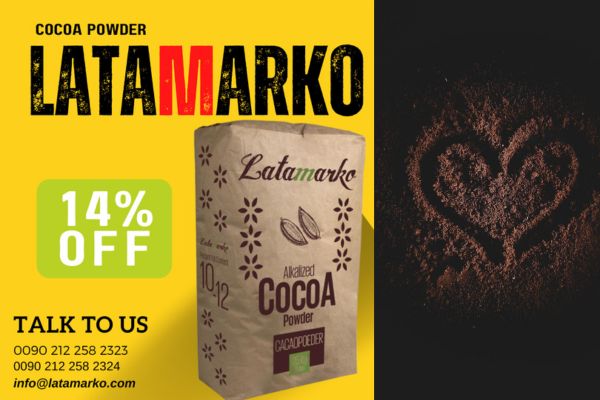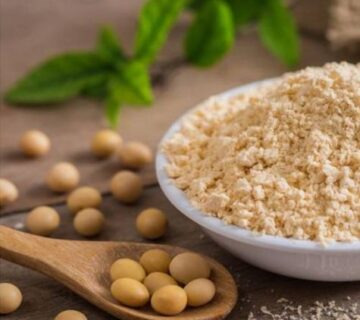In Algeria’s rapidly developing food manufacturing industry, alkalized cocoa powder has become one of the most essential ingredients shaping product quality, consumer satisfaction, and production efficiency. For industrial chocolate, bakery, beverage, and confectionery manufacturers, it’s not simply a flavoring—it’s a performance-critical component that determines how your product looks, tastes, and behaves under production pressure.
The growing demand for consistent, high-quality cocoa-based products in Algeria has made sourcing a top strategic priority. Selecting the right alkalized cocoa powder supplier in Algeria directly impacts color uniformity, pH stability, cost per unit, and production downtime. A reliable supply chain partner helps factories maintain their standards even when scaling output or adapting recipes for new market preferences.
At MT Royal, we’ve partnered with numerous Algerian and regional manufacturing facilities, providing them access to a curated range of cocoa powders from trusted brands around the world. Among these, Latamarko, a Spanish-origin manufacturer, stands out for its superior alkalization process and color precision. Spanish engineering, known for its durability and reliability, makes Latamarko’s products especially suitable for industrial-scale chocolate and beverage formulations where consistency is non-negotiable.
This article explores everything a production manager, procurement officer, or factory owner needs to know about sourcing alkalized cocoa powder in Algeria—covering fundamentals, supplier selection, technical benefits, and practical insights from real manufacturing environments.

Understanding Alkalized Cocoa Powder: Definition and Fundamentals
Alkalized cocoa powder, often called Dutch-processed cocoa, undergoes a chemical treatment with an alkaline solution—commonly potassium carbonate—to neutralize its natural acidity. This process results in a smoother flavor, darker color, and improved dispersibility, making it ideal for large-scale food production.
In industrial terms, the alkalization process enhances:
- Color control: Manufacturers can achieve rich brown to nearly black hues depending on alkalization intensity.
- Flavor smoothness: It removes bitterness, producing a milder, more rounded cocoa taste.
- Solubility and texture: Essential for uniform blending in beverages, fillings, and doughs.
- pH stability: Crucial for maintaining consistency across multiple production batches.
While natural cocoa powder suits some artisanal recipes, alkalized cocoa remains the industrial standard for chocolate drinks, biscuit coatings, ice creams, and bakery mixes—where precision and reproducibility matter more than raw intensity of flavor.
The Role of Alkalized Cocoa Powder in Industrial Manufacturing
For Algerian manufacturers, cocoa powder choice is far from cosmetic—it’s a technical decision tied to process efficiency and consumer appeal. Let’s break down its industrial significance:
1. Color Standardization for Brand Consistency
A beverage manufacturer producing chocolate milk for nationwide distribution cannot afford color variation between batches. Alkalized cocoa provides predictable pigment performance, enabling consistent visual identity in every product line.
2. Improved Dispersibility in Automated Systems
Modern production lines depend on automated mixers and dosing systems. Poor-quality cocoa often clumps or floats, disrupting flow rates. High-grade alkalized cocoa, such as that produced by Latamarko, disperses quickly and evenly, reducing downtime and waste.
3. Enhanced Flavor Profile in Processed Foods
When combined with fats, dairy, or emulsifiers, alkalized cocoa maintains a balanced taste—neither too acidic nor too bitter. This is critical in industrial recipes where other ingredients amplify or mute flavor.
4. Stable pH for Shelf Life and Product Integrity
A balanced pH means reduced chemical reactivity, better microbiological stability, and longer shelf life—vital for export-oriented Algerian producers.
Why Sourcing the Right Supplier Matters
Selecting a supplier isn’t simply about price—it’s about ensuring your factory runs smoothly without quality or delivery interruptions. In Algeria, the cocoa powder supply chain faces specific challenges: port delays, fluctuating currency rates, and seasonal transportation bottlenecks. Reliable suppliers anticipate and mitigate these issues.
A trusted alkalized cocoa powder supplier in Algeria must offer:
- Technical product data and certification (COA, MSDS, etc.)
- Batch consistency and traceability
- Scalable supply capacity for large orders
- Responsive logistics and localized stock where possible
- Knowledge of industrial applications (beyond simple resale)
At MT Royal, we understand how even small disruptions in cocoa supply can halt a production line. That’s why we collaborate directly with processing plants and logistics partners to maintain a continuous flow of industrial-grade cocoa ingredients. We ensure every delivery matches technical expectations and operational needs—reducing costly production delays.
European Precision: Why Latamarko Sets a Benchmark
When discussing top-tier quality in cocoa ingredients, European manufacturers have long held an edge due to their engineering standards and processing expertise. Spanish brands like Latamarko exemplify this excellence.
Latamarko’s cocoa powders are known for:
- Controlled alkalization: Achieving uniform color intensity across all lots.
- High dispersibility: Suitable for automated beverage and chocolate mixing systems.
- Stable pH range (6.8–7.5): Ideal for large-scale applications.
- Low moisture and controlled fat content: Enhancing storage stability.
- Compliance with EU safety and quality regulations.
In our experience working with factories in North Africa, manufacturers using Latamarko cocoa powder often report improved line efficiency and fewer adjustments during formulation trials. Its predictable behavior under heat and pressure allows technicians to focus on optimizing other process variables—like emulsification or texture control—without worrying about ingredient inconsistency.
Key Procurement Considerations for Factory Managers
When evaluating suppliers, procurement officers must balance cost per kilogram with total operational value. Below are the most critical factors to consider:
1. Alkalization Level & Color Grade
Different cocoa grades—from light brown to extra dark—affect the visual and sensory output. Match your supplier’s offering to your recipe specification.
| Color Intensity | Application Example | Typical pH |
|---|---|---|
| Light Alkalized | Bakery, instant mixes | 6.5–6.8 |
| Medium Alkalized | Chocolate drinks, fillings | 6.8–7.2 |
| Dark Alkalized | Coatings, cookies, syrups | 7.2–7.5 |
2. Moisture and Fat Content
Industrial-grade cocoa powders generally maintain <6% moisture and 10–12% fat, balancing dispersibility with shelf stability.
3. Microbiological Cleanliness
Suppliers should provide regular lab analyses confirming low microbial counts—especially for beverage and ready-to-eat applications.
4. Supply Chain Transparency
Traceability builds confidence. At MT Royal, all partner brands maintain lot-level traceability so factories can verify origin and production conditions anytime.
5. After-Sales Technical Support
An overlooked but crucial factor: access to formulation support or troubleshooting. Experienced suppliers don’t just deliver ingredients—they help solve manufacturing challenges.
Common Pitfalls in Cocoa Powder Procurement
Many Algerian manufacturers—especially those scaling up—face similar pitfalls when sourcing cocoa powder:
- Focusing solely on price. Cheaper products can lead to unstable pH, uneven color, or faster spoilage.
- Ignoring batch variability. Minor differences between shipments can disrupt large-scale recipes.
- Overlooking moisture control. High humidity exposure reduces shelf life dramatically.
- Lack of technical testing. Always validate cocoa performance under actual production conditions.
Avoiding these mistakes saves more than it costs. As we often tell clients at MT Royal, a few cents saved on a kilogram can multiply into thousands lost in product recalls or rejected batches.
Industrial Application Insights: What Works Best
To illustrate practical cocoa usage in Algerian facilities, consider these examples drawn from our supplier experience:
- Chocolate Spread Manufacturing: Requires dark alkalized cocoa for strong color contrast with fats and sugar. A pH above 7.2 ensures smooth texture and no aftertaste.
- Instant Beverage Plants: Need highly dispersible powders to mix evenly in both hot and cold liquids—medium alkalized grades perform best.
- Biscuit and Bakery Lines: Often prefer lighter alkalized cocoa for controlled flavor balance and stable baking color.
- Ice Cream Producers: Use medium-dark alkalized cocoa for aesthetic richness and compatibility with dairy proteins.
Each process demands specific powder behavior. That’s why supplier expertise—not just stock availability—matters.
The MT Royal Approach: Building Long-Term Supply Partnerships
At MT Royal, we see cocoa supply not as a transaction but as a partnership built on reliability, transparency, and technical value. We’ve supported numerous factories in Algeria by:
- Maintaining consistent stock levels for industrial buyers.
- Providing technical documentation and testing samples.
- Recommending optimal grades for cost and performance.
- Offering access to global brands, including premium European options like Latamarko.
We’ve seen factory managers benefit greatly when their ingredient partners understand the operational side of manufacturing—line throughput, formulation challenges, and compliance documentation. Our goal has always been to help factories minimize risk, reduce formulation downtime, and meet export-level standards consistently.
Frequently Asked Questions (FAQ)
Q1: What’s the difference between natural and alkalized cocoa powder?
Natural cocoa is acidic (pH ~5.0–5.5) and has a sharper flavor, while alkalized cocoa has a neutral pH (~6.8–7.5), offering smoother taste, darker color, and better solubility.
Q2: Does alkalization reduce nutritional value?
While minor antioxidant loss occurs, industrial formulations prioritize functionality—texture, flavor, and color stability—which outweigh minimal nutritional changes.
Q3: Which alkalized cocoa grade suits beverage production?
Medium alkalized powders (pH 6.8–7.2) dissolve efficiently and retain appealing brown color, ideal for instant drinks.
Q4: How can manufacturers ensure consistent quality in each batch?
Work with suppliers like MT Royal who enforce batch testing, COA validation, and traceable sourcing from certified producers.
Q5: Why choose European suppliers like Latamarko?
They provide exceptional color precision, reliability under industrial conditions, and compliance with EU manufacturing standards—ensuring top-tier consistency.
Strategic Insight: Future of Cocoa Ingredient Sourcing in Algeria
The Algerian confectionery and bakery sectors are projected to grow steadily as consumer demand for chocolate-based products expands. This growth highlights the importance of ingredient standardization and supplier partnerships.
We’ve observed a clear shift toward:
- Localized stock management to reduce lead times.
- Technically guided procurement based on performance, not just price.
- Preference for certified European brands to meet export regulations.
As Algeria’s manufacturing capacity strengthens, ingredient reliability will become the key differentiator between profitable and struggling producers.
Final Reflection
Cocoa powder sourcing isn’t about choosing the darkest color or the lowest price—it’s about engineering consistency, efficiency, and reliability into your production line. Manufacturers who treat sourcing as a technical collaboration rather than a simple purchase gain the upper hand in product quality and operational stability.
At MT Royal, we’ve seen this firsthand. When factories align with dependable suppliers, they don’t just meet market demand—they shape it. With the right partnership and products like Latamarko’s premium alkalized cocoa, Algerian manufacturers are well-positioned to lead regional growth with confidence, precision, and flavor that consumers recognize instantly.
latamarko alkalized cocoa powder lm60
cocoa powder for chocolate production-Best price
Food industry raw materials – list of products
Types of Gelatin from Turkish Manufacturer
Alkalized Cocoa Powder Bulk Supplier







No comment